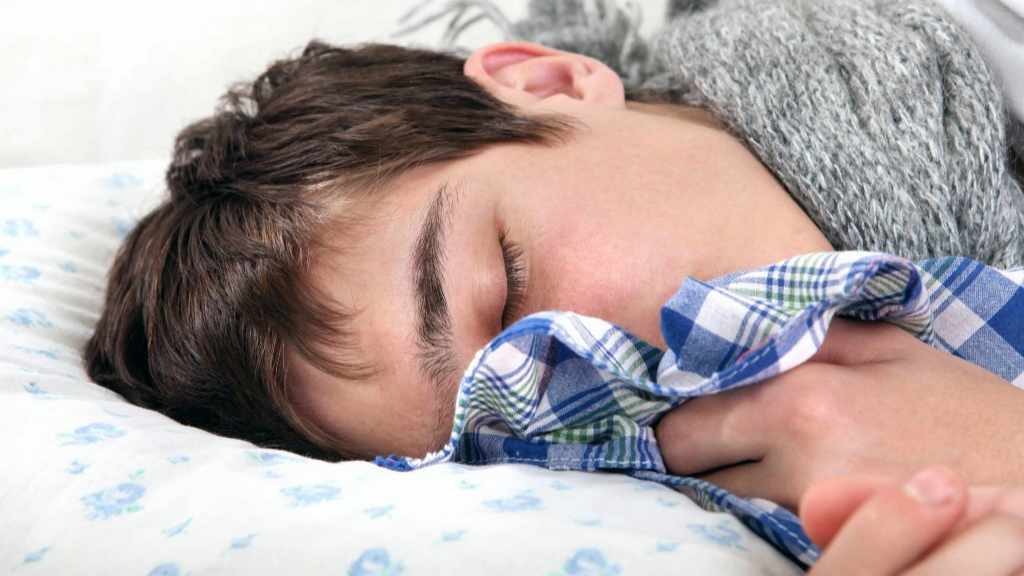-
COVID-19
COVID-19, RSV and flu–season of respiratory infections

COVID-19, respiratory syncytial virus (RSV) and influenza are respiratory infections caused by different viruses. The concern is that each has overlapping symptoms, and all are arriving together. There are ways to keep these viruses at bay as the U.S. enters the colder months.
"We're not really in a COVID-19 season or flu season, but in a respiratory infection season," says Dr. John O'Horo, an infectious diseases specialist at Mayo Clinic. "It's impossible to distinguish based on symptoms from a regular cold to RSV to COVID-19 or flu — especially if you have a mild case. But you can still transmit all of these to others."
He says people should look at this as more of a global question: "What can I do to prevent respiratory infections as opposed to what can I do to prevent COVID-19?"
"And the answers are staying up to date on your vaccines, COVID-19 and the flu; wearing a mask in the appropriate settings; or if you're a person who's had exceptional risk, hand-washing and doing everything you can if you do get sick to prevent spreading to others. That includes trying to stay home from work if you can, wearing a mask consistently if you have any kind of symptoms and being extraordinarily diligent about measures like hand-washing," says Dr. O'Horo.
Watch: Dr. John O'Horo talks about season of respiratory infections.
Journalists: Soundbites are in the downloads at the end of the post: Please courtesy: "John O'Horo, M.D./Infectious Diseases/Mayo Clinic."
COVID-19
Many of the COVID-19 omicron variants are now in circulation — B.1.1.529, BA.1, BA.1.1, BA.2, BA.3, BA.4 and BA.5 are closely monitored by scientists, including those with the Centers for Disease Control and Prevention and the World Health Organization.
"The important thing to know about these subvariants is that each of them is still omicron. They have the same features that omicron has. It's highly transmissible. It's not leading to the same degree of hospitalizations or deaths that we saw with previous variants. And your chances of getting severe illness remain much lower if you are vaccinated and up to date with your vaccines," says Dr. O'Horo.
What's happening with the omicron variants in the U.S. is being seen elsewhere around the globe, explains Dr. O'Horo.
"And that's the same that we're seeing across the entire world at this point. Everywhere. The omicron subvariants are becoming more dominant; there is more of what's called immune escape, where those who have previous infection, or particularly previous vaccines that were a long time ago, are more likely to get infected," he says. "But there still seems to be a substantial benefit to updating your vaccine now, compared to being previously vaccinated or infective."
Natural surge
Dr. O'Horo says an increase in COVID-19 and other respiratory infections is likely due to the upcoming colder months and holiday season.
"We've always thought there would be some seasonality to COVID-19. And coming into the holidays, especially, we can expect that we're going to see an increase in cases. We will probably see an increase in hospitalizations as well — in part to the natural surge that we're seeing and in part to seeing low uptake of the bivalent booster vaccines," he says. "Hopefully, we'll see that increase with the vaccinations and blunt some of that, but this is a respiratory infection season. And it's not just COVID-19 that we have to worry about this time. Influenza levels are likely to increase as well. And this is expected to be a more severe flu season because we've had two years without a flu season."
Prevent respiratory infections
Dr. O'Horo says studies show the COVID-19 bivalent booster vaccines offer a substantial benefit. He recommends everyone who is eligible should get vaccinated.
Along with ensuring you are fully vaccinated for COVID-19 and flu, there are many other protective measures you can take to ensure you and your family remain healthy.
Tips to protect against respiratory infections:
- Get vaccinated (COVID-19 and flu).
- Wash your hands often with soap and water.
- Stay home when sick.
- Avoid crowded areas.
- Masking remains a good option.
- Get tested.
While masking may not be practiced universally, wearing a mask when you have respiratory infection symptoms will help prevent others from getting sick, according to Dr. O'Horo.
"As you enter this season, it's going to be natural to have cold sniffles, flu and COVID-19 infections. It's just more likely to occur," he says. "If that happens, getting tested is important to avoid exposure and exposing others if you have symptoms, whether COVID-19 or not. Masking is still an excellent way to prevent others from getting sick."
Read more:
- What parents need to know about RSV.
- Cold, flu or allergies? Overlapping symptoms make it a challenge to know when to seek medical care.
- Mayo Clinic Minute: Flu vaccine may reduce risk of stroke.
For the safety of our patients, staff and visitors, Mayo Clinic has strict masking policies in place. Anyone shown without a mask was either recorded prior to COVID-19 or recorded in a nonpatient care area where social distancing and other safety protocols were followed.
Information in this post was accurate at the time of its posting. Due to the fluid nature of the COVID-19 pandemic, scientific understanding, along with guidelines and recommendations, may have changed since the original publication date.







